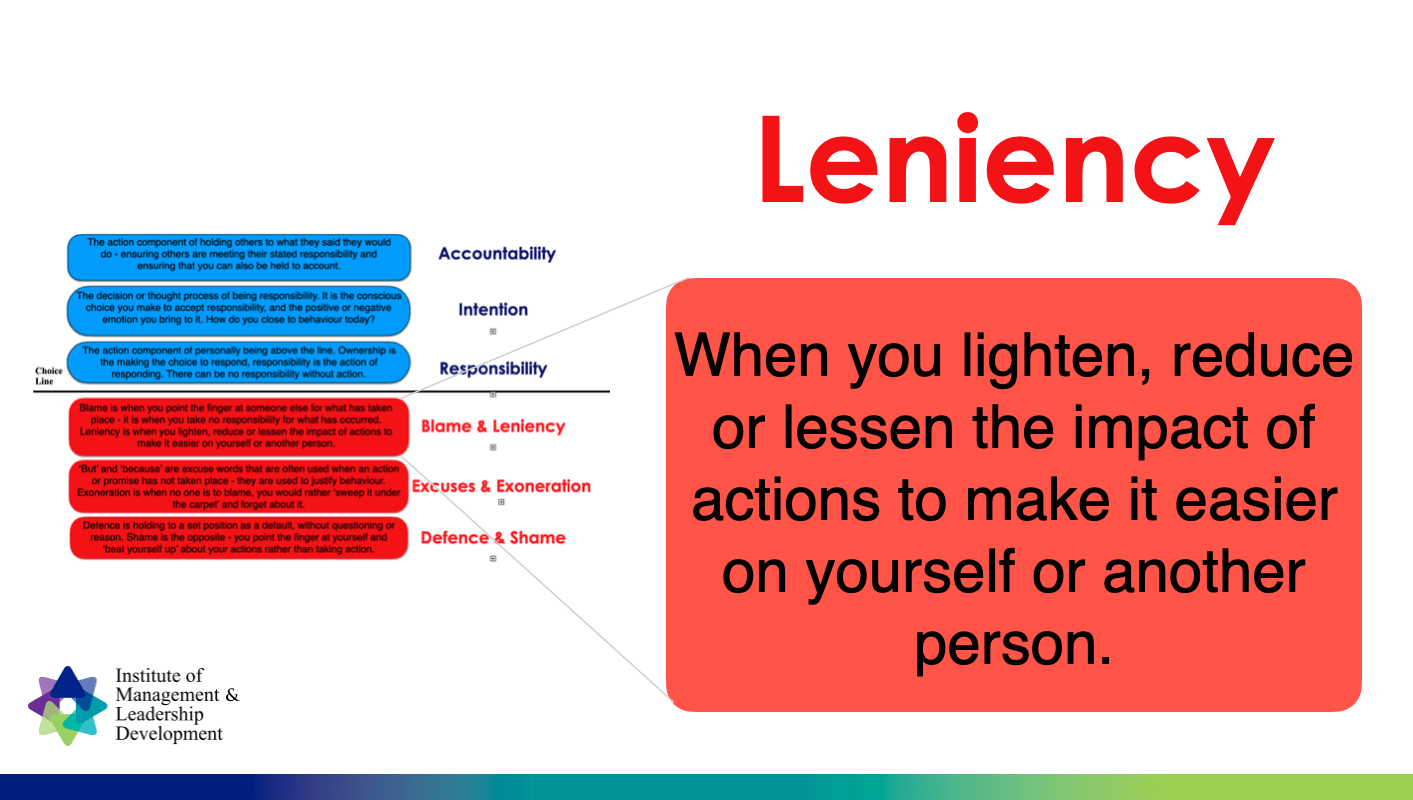Are you too lenient as a leader / manager? If you are, don’t be alarmed, ‘Am I too lenient on my team?’ is one of the most asked questions in our Emerging Leaders Program as well as our Executive Leadership Program. If you aren’t sure, here are some telltale comments (said to others or in your head) of a lenient leader:
? ‘It was only a little bit late’
? ‘I am sure it will be better next time’
? ‘I am sure they tried their best’
? ‘They are really busy at the moment, I’ll do it myself’
? ‘There is a lot going on at the moment – cut them some slack’
? ‘With work, kids and pandemic – they probably just missed it’
Lenient leaders ‘let people off the hook’ for their performance – in the hope that not saying something will make it easier on them, and / or easier on the person. What can seem like an act of kindness or generosity can just mask what could be a bigger problem.

Leniency isn’t empathy – empathy is a genuine understanding of what someone else is going through and being able to relate / adjust accordingly. Leniency is often about making an assumption, and hoping that it will fix itself.
Lenient Leaders Face 3 Key Problems
Lenient leaders face 3️⃣ key problems that impact their leadership and the team culture:
1️⃣. They end up having to do more work themselves
2️⃣. They undermine the standards fo the team and reduce ‘the bar’ overall
3️⃣. Over time they get resentful and seek to blame others for issues that have stemmed from their own leniency.
Overcoming leniency as a leader requires several steps – and it starts by being very clear on expectations and understanding / discussing consequences (both positive and negative) for actions. It isn’t about ‘being hard’ or lacking in empathy – in fact quite the opposite.
Are you a lenient leader? What is your ‘go to’ lenient phrase?
Good Leaders Challenge Their Own Leniency
Ensuring that you aren’t being lenient on your team doesn’t mean that you don’t care for them or don’t understand the issues / problems / challenges they are facing. In fact, it can demonstrate the opposite. Setting and maintaining a clear standard – whether that it is on the accuracy of work or adhering to deadlines, raises the standard of you and your team. That may take coaching and further training to ensure that it is maintained, and that is also part of being a leader.
If you want to impact your lenient leadership traits and become more effective as a leader, get in touch via the Contact page or book a Discovery call through our Calendly link.
#leadership#leaders#empathy#culture#lenientleaders#IMLD#developingleaders
Related Articles on Leader and Leadership:
Shame Is A Common Leadership Behaviour – Is It One Of Yours?



